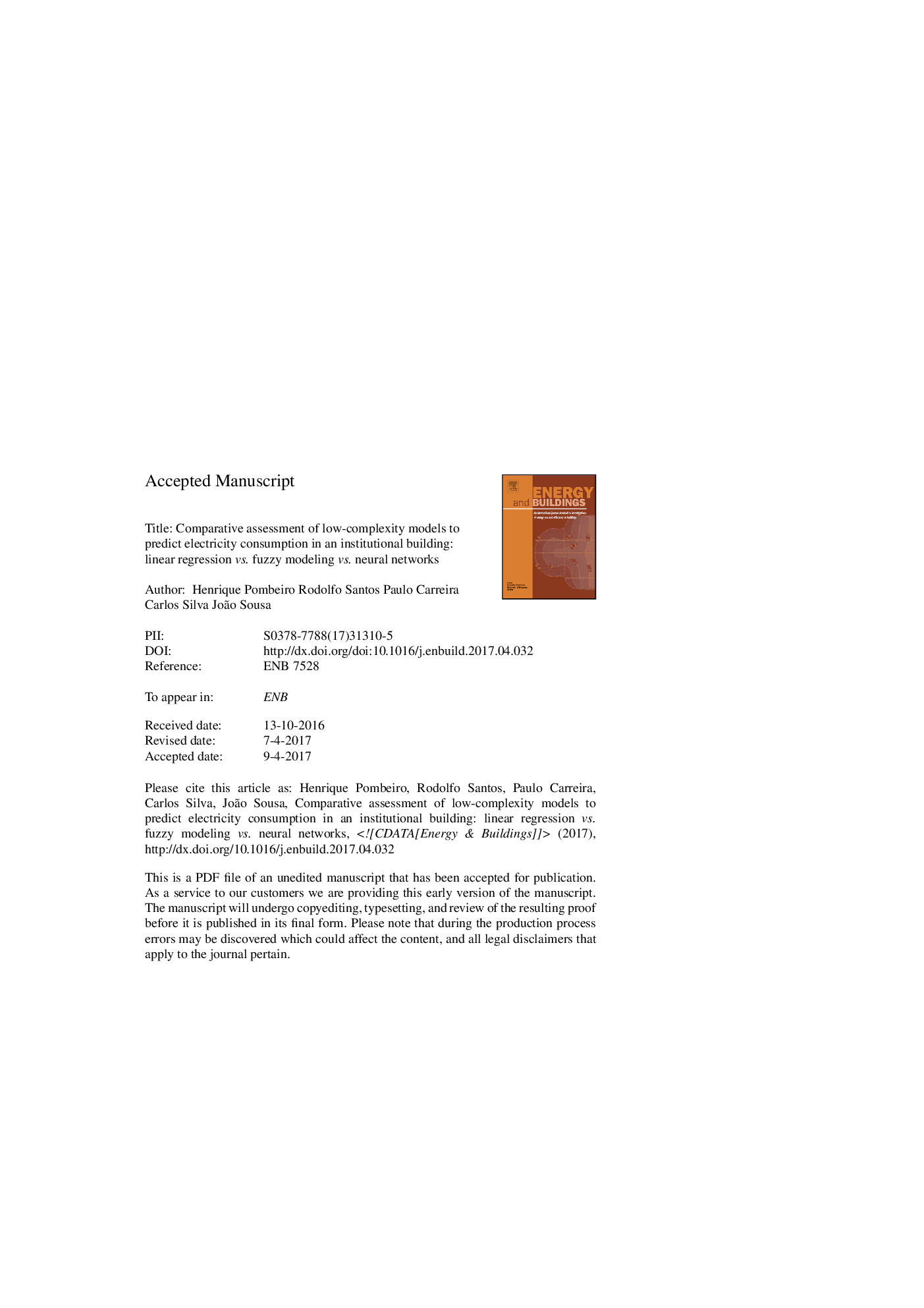| کد مقاله | کد نشریه | سال انتشار | مقاله انگلیسی | نسخه تمام متن |
|---|---|---|---|---|
| 4919220 | 1428944 | 2017 | 19 صفحه PDF | دانلود رایگان |
عنوان انگلیسی مقاله ISI
Comparative assessment of low-complexity models to predict electricity consumption in an institutional building: Linear regression vs. fuzzy modeling vs. neural networks
ترجمه فارسی عنوان
ارزیابی مقایسه ای از مدل های کم پیچیدگی برای پیش بینی مصرف برق در ساختمان سازمانی: رگرسیون خطی در مقابل مدل سازی فازی در مقابل شبکه های عصبی
دانلود مقاله + سفارش ترجمه
دانلود مقاله ISI انگلیسی
رایگان برای ایرانیان
کلمات کلیدی
ساختمان های هوشمند، مدل انرژی، برآورد شغل، رگرسیون خطی، سیستم های فازی شبکه های عصبی،
موضوعات مرتبط
مهندسی و علوم پایه
مهندسی انرژی
انرژی های تجدید پذیر، توسعه پایدار و محیط زیست
چکیده انگلیسی
Developing energy efficiency strategies for Intelligent Buildings requires a continuous monitoring of the impacts of energy efficiency measures against baseline scenarios. Since not all consumption events can be linearly described, non-linear models based on fuzzy systems and neural networks are successful where linear models either become inaccurate or too complex to be employed in practice. Herein, we study the adequacy of plain-designed non-linear models to predict energy consumption in a real-world Intelligent Building setting by using simple predictor variables such as time-of-day, weather conditions, and occupancy as estimated from WiFi traffic. The developed Fuzzy Systems and Neural Network models achieve considerably better performance and accuracy indexes than linear regression models, with VAFs equal to 79.3% and 75.7% respectively, and MAE of 5.9 and 7.1Â kWh, respectively, against 36.6% VAF and 12.8Â kWh MAE for linear regression models, thus demonstrating that low complexity non-linear models can be used to accurately describe energy consumption baselines in Intelligent Buildings.
ناشر
Database: Elsevier - ScienceDirect (ساینس دایرکت)
Journal: Energy and Buildings - Volume 146, 1 July 2017, Pages 141-151
Journal: Energy and Buildings - Volume 146, 1 July 2017, Pages 141-151
نویسندگان
Henrique Pombeiro, Rodolfo Santos, Paulo Carreira, Carlos Silva, João M.C. Sousa,
